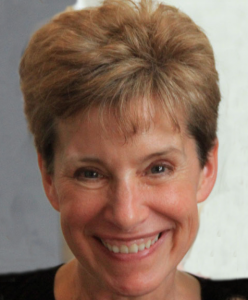Multiple referendums are timed to kill open space projects
The following letter appeared in local newspapers and is shared with us here by the author Ruth Platner
————————-

In recent days a few people have written letters or made statements critical of the Charlestown Town Council for not holding a second referendum on the purchase of the “Whalerock” land. We do need another open space referendum, but it is not the one this handful of objectors are asking for.
In the last 15 years there have been 5 major statewide open space referendums for the purchase of land, development rights, and conservation easements for over $100 million in Rhode Island. These state ballot initiatives in the 1998, 2000, 2004, 2008, and 2012 general elections were approved overwhelmingly by Charlestown voters who gave the state questions from 71 percent to 78 percent approval.
The 78 percent approval came in 2000 when there was also a local open space question for $2 million on the November ballot. At the 2002 Financial Town Meeting an additional $1 million open space question passed and members of the Conservation Commission circulated a petition to add a $2 million open space question to the 2004 Financial Town Referendum.
Except for the unspent 2004 local open space bonds, these state and local funds have been spent in Charlestown on land and development rights without going for a second referendum. In fact land has been purchased all over the state to expand existing state parks and management areas, to create new parks and protect wildlife habitat, to provide public access to beaches, rivers and ponds, and expand Rhode Island’s hiking trails. All of these were purchased using the existing state voter approval. No one was asked to vote on the funding and then again on individual projects.
Despite the strong support of Charlestown voters for land conservation, the two million dollars approved in 2004 has never been spent. The 2004 Town Council didn’t want to put the question on the ballot and not until the 2012 election have we had a majority on the Town Council willing to preserve land by spending these 2004 open space funds.
To guarantee that available funds and a Town Council willing to spend them result in good acquisitions, the Town adopted Open Space Acquisition Procedures in 2003. These criteria give priority to open space projects that protect ground and surface water, ecologically significant habitat, and scenic qualities; that expand other protected land; that provide opportunities for passive recreation and public access; or that preserve farmland. The Acquisition Procedures also consider the size of the property and the long term fiscal impact.
The nearly 75 acre parcel on Rt. 1 that the Town Council majority recently voted to acquire ranks high on these established open space criteria. In addition it is the largest remaining undeveloped parcel in the Charlestown Moraine and several speakers at the August 22 public hearing testified to the long term tax benefit of preserving the land. This high ranking was confirmed by The Nature Conservancy, US Fish and Wildlife Service, Audubon Society of Rhode Island, Charlestown Land Trust, Frosty Drew Observatory and Nature Center, and the Salt Ponds Coalition, who all spoke in favor of the acquisition.
There were enough voters at the public hearing in favor of the purchase to have easily passed a special election. But demanding a special referendum for this parcel would have killed the deal. The owner was willing to sell, but not willing to wait for a referendum.
A special referendum is needed for projects that don’t rank high in the Open Space Acquisition Procedures, or projects that are completely outside those criteria,or that exceed already approved or available funding, or that are truly controversial. But putting each open space purchase to a second referendum simply adds another obstacle and will result in even less land preservation in our town.
I hope that Charlestown will continue the practice established by the state, other towns, and conservation organizations, of raising the funds first and then being ready for open space opportunities when they arise.
Our last referendum for open space bonding was in 2004. It’s been over 9 years, and the referendum we need now is another open space bond, not redundant votes timed to kill open space projects.
Ruth Platner
The writer is Chair of the Charlestown Planning Commission